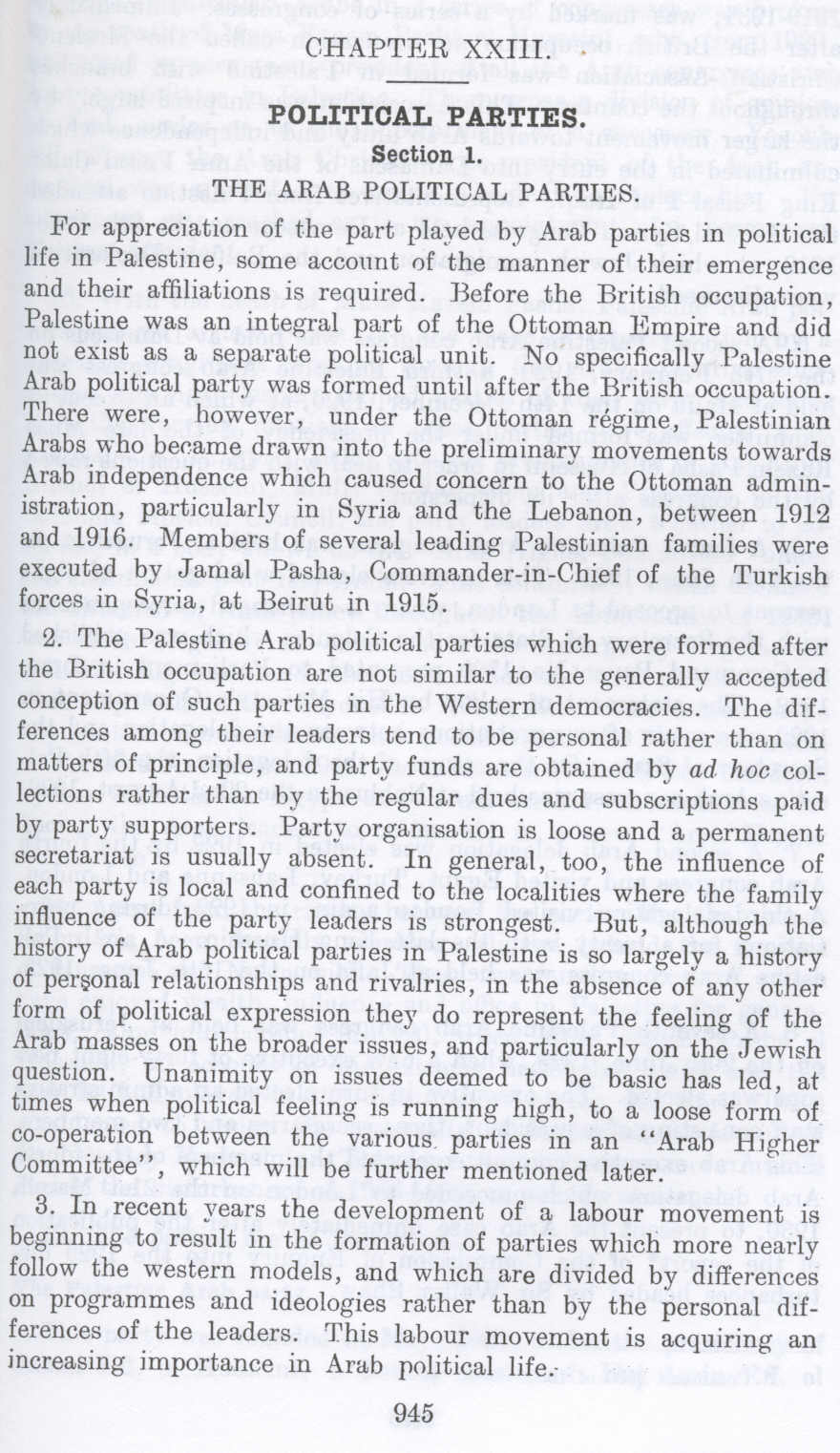| Prev | Next |  |
| Prev | Next |
| PalestineRemembered | About Us | Oral History | العربية | |
| Pictures | Zionist FAQs | Haavara | Maps | |
| Search |
| Camps |
| Districts |
| Acre |
| Baysan |
| Beersheba |
| Bethlehem |
| Gaza |
| Haifa |
| Hebron |
| Jaffa |
| Jericho |
| Jerusalem |
| Jinin |
| Nablus |
| Nazareth |
| Ramallah |
| al-Ramla |
| Safad |
| Tiberias |
| Tulkarm |
| Donate |
| Contact |
| Profile |
| Videos |
Political Parties in Palestine before 1948 (Nakba), Section 1: The Arab Political Parties. British Mandate: A Survey of Palestine: Volume II - Page 945. Chapter XXIII |
Disclaimer
The above documents, article, interviews, movies, podcasts, or stories reflects solely the research and opinions of its authors. PalestineRemembered.com makes its best effort to validate its contents.


Post Your Comment
*It should be NOTED that your email address won't be shared, and all communications between members will be routed via the website's mail server.
POLITICAL PARTIES.
Section l.
THE ARAB POLITICAL PARTIES.
For appreciation of the part played by Arab parties in political life in Palestine, some account of the manner of their emergence and their affiliations is required. Before the British occupation, Palestine was an integral part of the Ottoman Empire and did not exist as a separate political unit. No specifically Palestine Arab political party was formed until after the British occupation. There were, however, under the Ottoman regime, Palestinian Arabs who became drawn into the preliminary movements towards Arab independence which caused concern to the Ottoman administration, particularly in Syria and the Lebanon, between 1912 and 1916. Members of several leading Palestinian families were executed by Jamal Pasha, Commander-in-Chief of the Turkish forces in Syria, at Beirut in 1915.
2. The Palestine Arab political parties which were formed after the British occupation are not similar to the generally accepted conception of such parties in the Western democracies. The differences among their leaders tend to be personal rather than on matters of principle, and party funds are obtained by ad hoc collections rather than by the regular dues and subscriptions paid by party supporters. Party organisation is loose and a permanent secretariat is usually absent. In general, too, the influence of each party is local and confined to the localities where the family influence of the party leaders is strongest. But, although the history of Arab political parties in Palestine is so largely a history of personal relationships and rivalries, in the absence of any other form of political expression they do represent the feeling of the Arab masses on the broader issues, and particularly on the Jewish question. Unanimity on issues deemed to be basic has led, at times when political feeling is running high, to a loose form of co-operation between the various parties in an "Arab Higher Committee", which will be further mentioned later.
3. In recent years the development of a labour movement is beginning to result in the formation of parties which more nearly follow the western models, and which are divided by differences on programmes and ideologies rather than by the personal differences of the leaders. This labour movement is acquiring an increasing importance in Arab political life ..
945